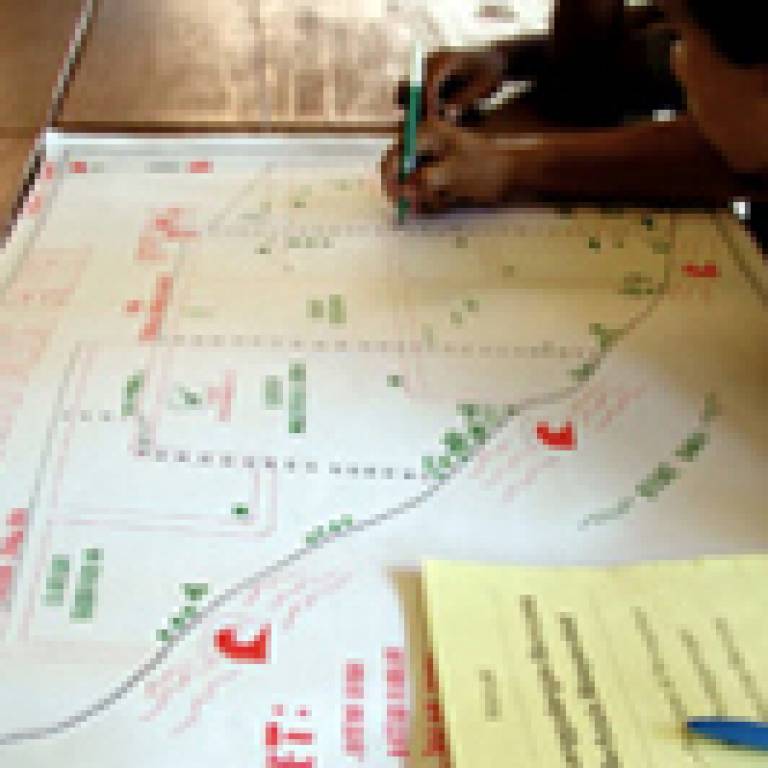UCL Town Meeting on Risk & Disaster Reduction
21 May 2009
Link:
 ucl.ac.uk/rdr/" target="_self">UCL Institute for Risk & Disaster Reduction
ucl.ac.uk/rdr/" target="_self">UCL Institute for Risk & Disaster Reduction
A UCL Town Meeting on Risk & Disaster Reduction (RDR), held on 20 May 2009, heard that the number and severity of disasters worldwide was growing, and that to reduce both risk of disasters and disasters themselves would require the application of the breadth of UCL's expertise.
In an increasingly hazardous world, risk- and disaster-related activities are major growth areas. Reducing global risks and disasters presents a colossal challenge that requires coordinated and collaborative action. UCL is uniquely well-placed to provide this, with at least 70 academics across 12 departments and seven faculties involved in world-class research and practice in the field.
The establishment of a UCL Institute for Risk & Disaster Reduction has been proposed to maximise the impact and value of UCL activities in RDR. Peter Sammonds, UCL Professor of Geophysics, who coordinated the town meeting, welcomed attendees, while Professor David Price, UCL Vice-Provost (Research) set the initiative in the context of UCL's Grand Challenges. Bill McGuire, UCL Professor of Geophysical & Climate Hazards, described the potential benefits of the proposed institute.
A series of short presentations followed. Professor David Napier (UCL Anthropology) spoke on the social aspects of risk and disaster, highlighting the significance of public perception. Dr Stephen Edwards (Aon Benfield UCL Hazard Research Centre) described the need to engage UCL's scientific strengths in monitoring, modelling and forecasting with those responsible for decision-making, planning and policymaking.
Dr Andrew Hayward (UCL Centre for Infectious Disease Epidemiology) demonstrated predictive models of a flu pandemic, and emphasised the need for such research to engage with other relevant disciplines, such as engineering and psychology. Professor Mark Maslin (UCL Environment Institute) demonstrated that climate change had been shown to increase the frequency of extreme events, to the detriment of human health. As temperatures rose, human would spend an increasing amount of time outside their 'coping zone'.
Dr Ka man Lai (UCL Civil, Environmental & Geomatic Engineering), of the Urban Pathogens Network (U-path), spoke on the role of infrastructure and engineering in the reduction of infection. Dr John Twigg (Aon Benfield UCL Hazard Research Centre) summarised the shift in approach to hazards, from a reactive post-disaster pattern to a pre-emptive approach of reducing risk. This would require social intervention as much as technological development.
Stimulating discussion confirmed the breadth of interest in RDR. Staff who were not able to attend are invited to contact Professor Sammonds.
To find out more use the link at the top of this article.
 Close
Close

